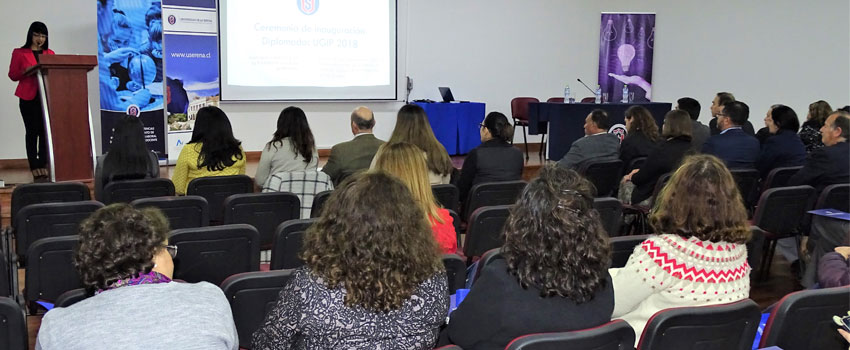
The ceremony took place on Friday, September 28, 2018 in the Pentagon Hall of the University of La Serena.
As a way of maintaining and improving the training of the institution's pedagogy teachers, the Integrated Pedagogy Management Unit (UGIP) gave way to the creation of two diploma courses focused on the area of didactic innovation in the Initial Training of Teachers and in the development of competences for the accompaniment of practices in a work context. Both initiatives are part of the PMI FIP ULS1501 Institutional Improvement Plan and mark a relevant milestone within the actions contemplated by the project.
In this context, the inauguration ceremony was held, which was attended by the highest institutional authorities, directors and coordinators of the ULS pedagogy careers, students participating in both diploma courses, professors, and the UGIP team of professionals.
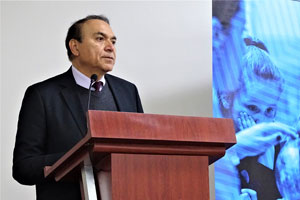 “The University of La Serena has prioritized, strengthened, and declared that pedagogies are part of the institution's raison d'être, and we must highlight the effort and commitment that many generations of academics and managers have made to benefit them. Today we are giving a clear signal that we are committed to such an important task as education and we as a University are concerned about continuing to improve our educational processes”, said the Rector of the house of studies, Dr. Nibaldo Avilés.
“The University of La Serena has prioritized, strengthened, and declared that pedagogies are part of the institution's raison d'être, and we must highlight the effort and commitment that many generations of academics and managers have made to benefit them. Today we are giving a clear signal that we are committed to such an important task as education and we as a University are concerned about continuing to improve our educational processes”, said the Rector of the house of studies, Dr. Nibaldo Avilés.
In the same way, the Academic Vice Rector and Executive Director of the PMI, Dr. Jorge Catalán, referred to the importance of the instance. “We have a great track record, responsibility and commitments that we must fulfill, and one of them is to provide conditions for the training of staff who train teachers (...); today the institutional commitment is to always train our students with a practical look and the inauguration of these diploma courses represents a historic moment in the training of the institution's educators”, he emphasized.
In this way, the graduates aim to contribute to the professional, disciplinary and pedagogical development of those whose mission is to train future teachers in the region and the country. "We hope that the diploma courses will be very useful for the reflection and academic training of teachers, fundamentally in this perspective of integration and trying to link the requirements both at the national level and those of the region," said the alternate executive director of the PMI , Dr. Fabian Araya.
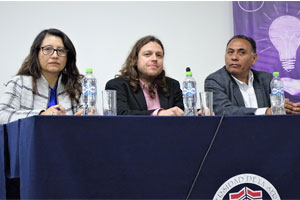 Master class
Master class
The occasion was attended by Dr. Mario Sobarzo, member of the Executive Committee of the Chilean Observatory of Educational Policies of the University of Chile and academic of the Department of Philosophy of the Faculty of Humanities of the University of Santiago de Chile, who was in charge to present the keynote talk "Challenges in Initial Teacher Training: A look from Innovation and Pedagogical Research".
In this regard, the professional elaborated on the orientations of Latin American Public Policies and those specific to Initial Teacher Training, the transformations that the teaching profession has had and how meritocracy has affected it.
“We have to go back to the questions and assume the confusion of reality. Pedagogy, and those of us who dedicate ourselves to its teaching, today are gripped by questions that are external to the school, as we have indicated up to now, but also to contradictions inherent to the system itself. The knowledge that we declared as true just two decades ago is now being questioned. And the very possibility of founding new assumptions enters into a crisis shortly after they are implemented to build new knowledge”, affirmed the speaker.
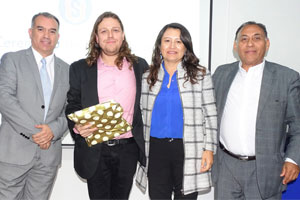 For this reason, the academic argued that "pedagogy careers have been obliged to rethink the insertion processes of teachers in training and novices, adapting them to a permanent updating praxis."(See full presentation)
For this reason, the academic argued that "pedagogy careers have been obliged to rethink the insertion processes of teachers in training and novices, adapting them to a permanent updating praxis."(See full presentation)
The ceremony ended with a discussion table, in which the directors of the respective graduates, Dr. Rodrigo Ruay and Dr. Sandra Álvarez, participated.
It is worth mentioning that, during the morning session, the UGIP team together with Dr. Sobarzo held a discussion, in which they reflected on the challenges that must be considered to address the processes of institutional improvement in teacher training, exchanging the experiences of the respective PMI developed in the various houses of study.
Source: Unit for the Integrated Management of Pedagogies (UGIP) | PMI FIP ULS1501 – CM ULS 1755

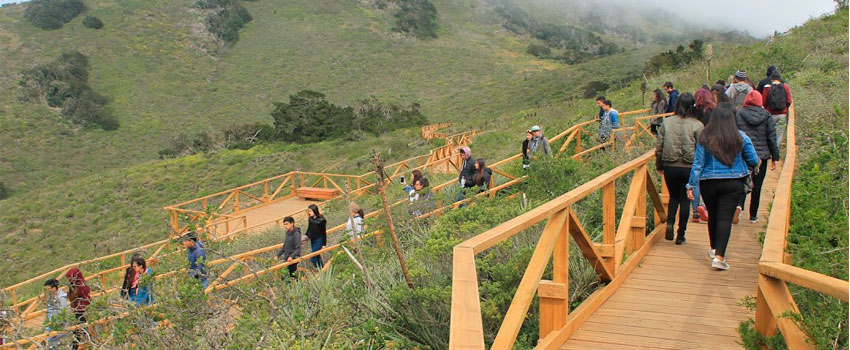
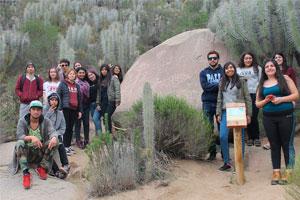 This year, the theme of World Tourism Day is “Tourism and digital transformation.” According to the World Tourism Organization (UNWTO), thanks to technological advances in the tourism sector, we can contribute to the achievement of important development objectives in this area, whether in companies, inclusion, or the development of communities. local and the sustainability of the sector. The UNWTO considers that digital advances and innovation are part of the answer to the challenge of combining continuous growth with greater sustainability and responsibility in the tourism sector.
This year, the theme of World Tourism Day is “Tourism and digital transformation.” According to the World Tourism Organization (UNWTO), thanks to technological advances in the tourism sector, we can contribute to the achievement of important development objectives in this area, whether in companies, inclusion, or the development of communities. local and the sustainability of the sector. The UNWTO considers that digital advances and innovation are part of the answer to the challenge of combining continuous growth with greater sustainability and responsibility in the tourism sector. 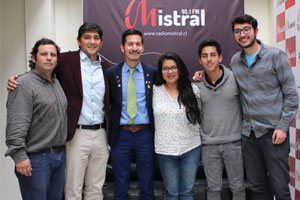 Visit to Valle del Encanto and Fray Jorge Park
Visit to Valle del Encanto and Fray Jorge Park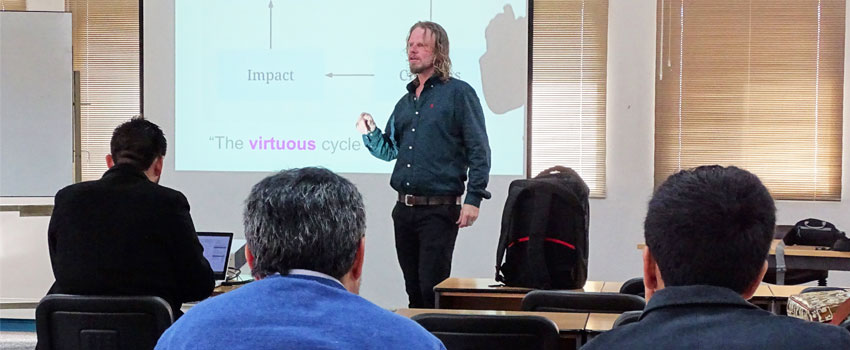
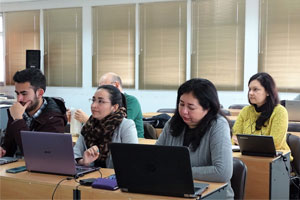 He also emphasized that, in the analysis they carry out on the works to obtain greater possibilities of publication, they take into account the title, the keywords and the combination that these have in the article.
He also emphasized that, in the analysis they carry out on the works to obtain greater possibilities of publication, they take into account the title, the keywords and the combination that these have in the article.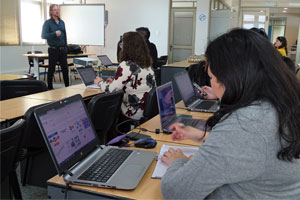 Finally, the professional presented some suggestions to consider when writing a research paper, among which are starting with global relevance, reducing everything to a group of keywords, choosing the sample size and methodology according to the current literature, demonstrate a concise, orderly and relevant theoretical base, clearly state what contribution the study seeks to make, make small innovations within the niche, identify which is the best journal to publish, among others.
Finally, the professional presented some suggestions to consider when writing a research paper, among which are starting with global relevance, reducing everything to a group of keywords, choosing the sample size and methodology according to the current literature, demonstrate a concise, orderly and relevant theoretical base, clearly state what contribution the study seeks to make, make small innovations within the niche, identify which is the best journal to publish, among others.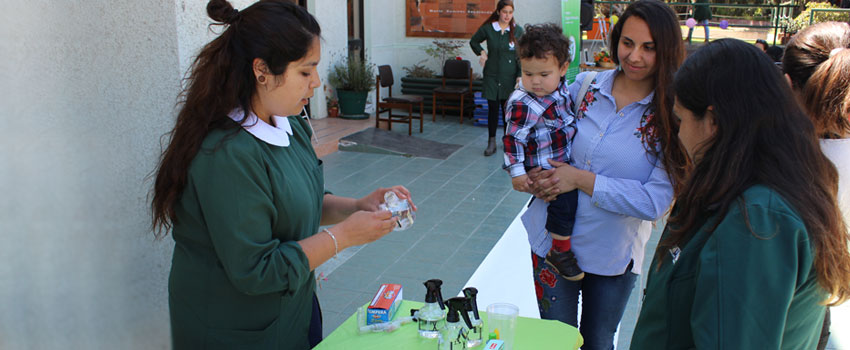
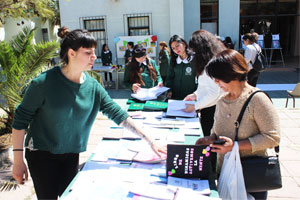 The academic from the Department of Education, Dr. Rossana Godoy, pointed out that the purpose of this initiative is “to deepen the spaces for reflection and appreciation of what childhood is. The work, studies, didactics and resources that are shared (in the sample) aim to raise awareness in the community regarding our role, our commitment and how we are advancing in raising awareness as citizens in this commitment to the value of children's rights, with the value of the relationships we forge at this stage of their lives, with the value of looking at ourselves with an understanding of how we are doing and how we are addressing these relations".
The academic from the Department of Education, Dr. Rossana Godoy, pointed out that the purpose of this initiative is “to deepen the spaces for reflection and appreciation of what childhood is. The work, studies, didactics and resources that are shared (in the sample) aim to raise awareness in the community regarding our role, our commitment and how we are advancing in raising awareness as citizens in this commitment to the value of children's rights, with the value of the relationships we forge at this stage of their lives, with the value of looking at ourselves with an understanding of how we are doing and how we are addressing these relations". 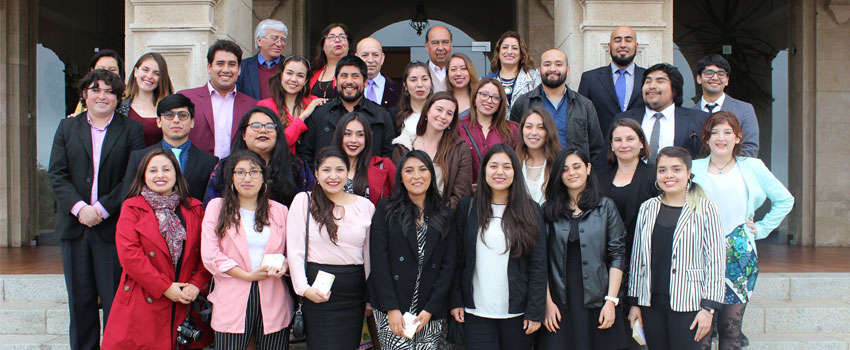
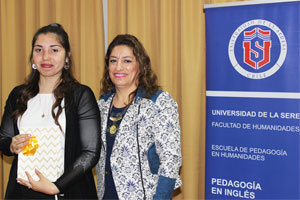 This year, the recognition for the best graduate was obtained by Fernando Castro, who pointed out that “receiving this recognition is very significant and demonstrates the effort I put into the years of my degree.” In turn, the distinction for the spirit of the race remained in the hands of Macarena Carvajal.
This year, the recognition for the best graduate was obtained by Fernando Castro, who pointed out that “receiving this recognition is very significant and demonstrates the effort I put into the years of my degree.” In turn, the distinction for the spirit of the race remained in the hands of Macarena Carvajal.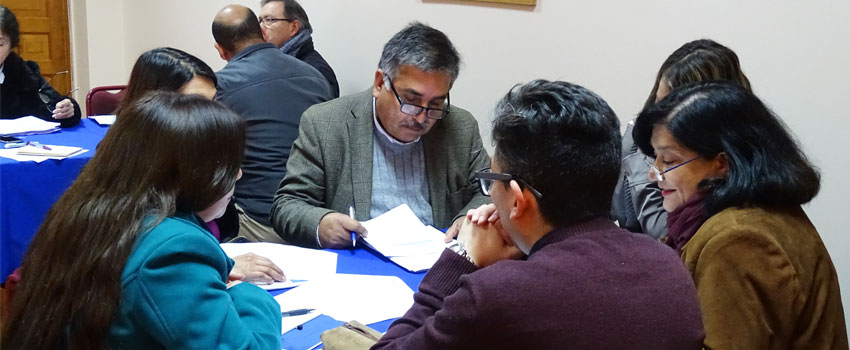
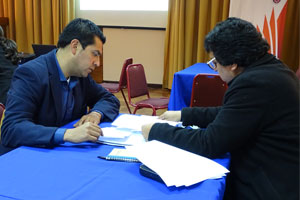 “The role that the UGIP has will be fundamental in the task of implementing the necessary improvements in the pedagogy courses of the University through the respective remedial plans, since it is the institutional unit that works so that the pedagogies are integrated and work in an coordinated,” explained on the occasion the alternate executive director of the PMI, Dr. Fabián Araya.
“The role that the UGIP has will be fundamental in the task of implementing the necessary improvements in the pedagogy courses of the University through the respective remedial plans, since it is the institutional unit that works so that the pedagogies are integrated and work in an coordinated,” explained on the occasion the alternate executive director of the PMI, Dr. Fabián Araya.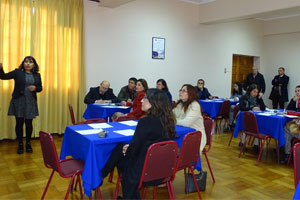 “We can say that students, according to their knowledge and identification of information, handle it very well, that is, they can know information and identify it effectively. The weakness is in the inference, in the interpretation of the information and that is where we have to start making decisions, reviewing whether our programs respond to the development of higher skills, that is, if they are focused on differential elements (...); and the second is that starting in 2016 the Quality Agency is stipulating work with the channels of informative and progressive evaluation, and that represents a fundamental change in perception from an evaluation of learning to an evaluation for learning, and “That represents a greater challenge for us,” said the Mg. Rodrigo Vega.
“We can say that students, according to their knowledge and identification of information, handle it very well, that is, they can know information and identify it effectively. The weakness is in the inference, in the interpretation of the information and that is where we have to start making decisions, reviewing whether our programs respond to the development of higher skills, that is, if they are focused on differential elements (...); and the second is that starting in 2016 the Quality Agency is stipulating work with the channels of informative and progressive evaluation, and that represents a fundamental change in perception from an evaluation of learning to an evaluation for learning, and “That represents a greater challenge for us,” said the Mg. Rodrigo Vega.